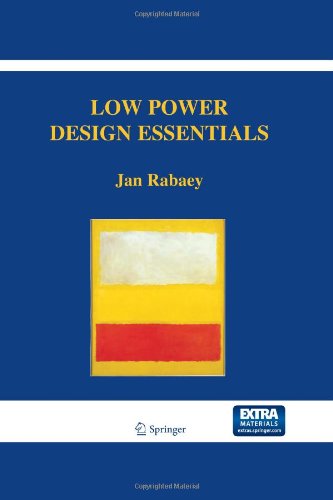

Most ebook files are in PDF format, so you can easily read them using various software such as Foxit Reader or directly on the Google Chrome browser.
Some ebook files are released by publishers in other formats such as .awz, .mobi, .epub, .fb2, etc. You may need to install specific software to read these formats on mobile/PC, such as Calibre.
Please read the tutorial at this link: https://ebookbell.com/faq
We offer FREE conversion to the popular formats you request; however, this may take some time. Therefore, right after payment, please email us, and we will try to provide the service as quickly as possible.
For some exceptional file formats or broken links (if any), please refrain from opening any disputes. Instead, email us first, and we will try to assist within a maximum of 6 hours.
EbookBell Team

0.0
0 reviewsLow Power Design Essentials is the first book at the graduate level to address the design of low power digital integrated circuits in an orderly and logical fashion. As such, this book will be of interest to students as well as professionals. In addition to taking an educational approach towards low-power design, the book also presents an integrated methodology to address power at all layers of the design hierarchy. Finally, the text also explains the main roadblocks as well as the physical limits in further energy scaling.
This book is based on the extensive amount of teaching the author has carried out both at universities and companies worldwide. All chapters have been drawn up specifically for self-study. Different levels of understanding are included within each chapter. All chapters begin with elementary material and almost all contain advanced material.
A unique format is used for this book. Rather than the traditional approach of a lengthy continuous text interspersed with some figures, it uses the reverse approach of dominant graphics with accompanying suppplemental text. It is understood that a single figure does a lot more to convey a message than a page of text.
It is hoped that this innovative format provides a better structure for learning the essential topics in low power design.
About the Author
Jan Rabaey received his Ph.D degree in Applied Sciences from the Katholieke Universiteit Leuven, Belgium. From 1983-1985, he was connected to the UC Berkeley as a Visiting Research Engineer. From 1985-1987, he was a research manager at IMEC, Belgium, and in 1987, he joined the faculty of the Electrical Engineering and Computer Science department of the University of California, Berkeley, where he is now holds the Donald O. Pederson Distinguished Professorship. He is currently the scientific co-director of the Berkeley Wireless Research Center (BWRC), as well as the director of the FCRP-sponsored GigaScale Systems Research Center (GSRC). He is an IEEE Fellow.